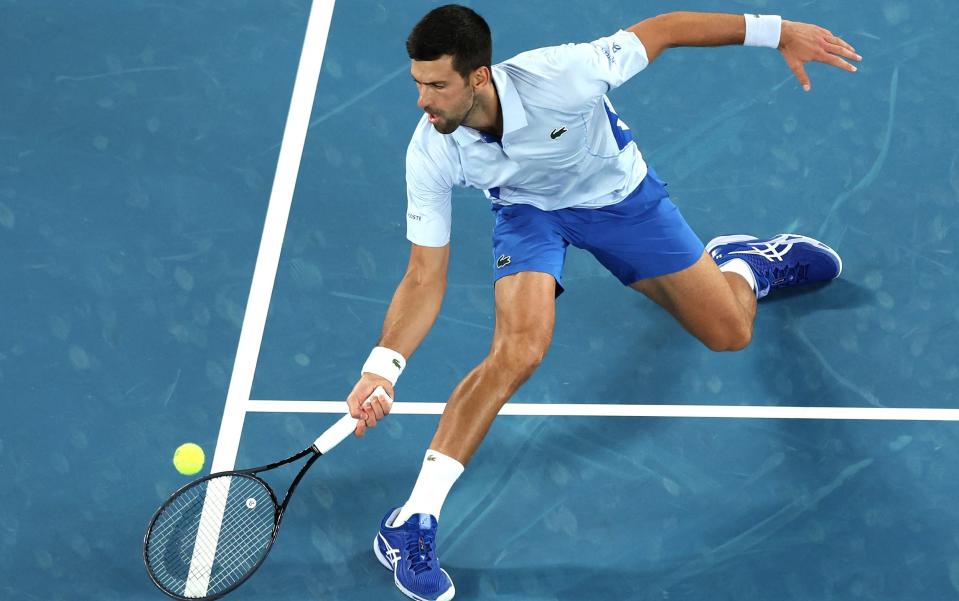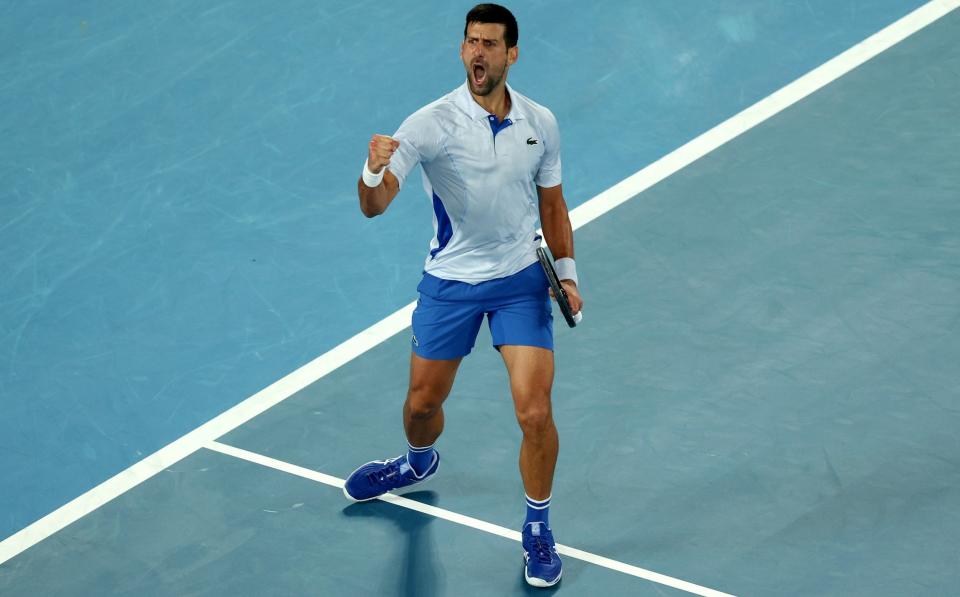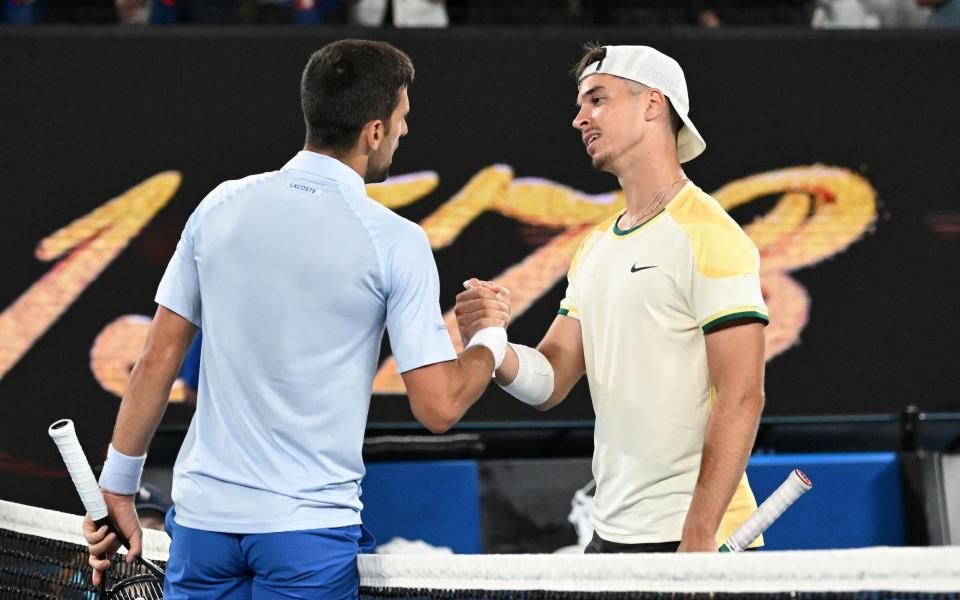Novak Djokovic on ‘the one good thing’ that came from Australia deportation saga

Novak Djokovic has spoken for the first time about the upside of his controversial stay in Melbourne in 2022 – the year when he was detained by immigration officials for entering Australia without a Covid vaccination certificate.
Djokovic was in the country for 11 nights while his case was considered, spending four of them at the Park Hotel on the north side of the city. Notorious for serving maggots in its food, the Park Hotel was then home to around 30 other detainees, some of whom had been there for months.
Yet Djokovic’s very presence turned a spotlight on this well-upholstered prison, and within three months all the inmates had been freed.
“It was one good thing that came out of all that,” Djokovic said. “Because of me, that place got so much media attention, the pressure from the media followed and people were released.”
The most shocking case involved an Iranian refugee named Mehdi Ali, who had come to Australia as a 15-year-old, fleeing the ethnic persecution that is directed at the four million-strong Ahwazi Arab community.
Ali could hardly have guessed that he would spend the next nine years in Australia’s immigration detention system – mostly at the infamous Nauru Centre, which has since been closed after an investigation disclosed widespread abuse. In March 2022, he was finally freed, and began a new life in the American city of Minneapolis.
“I feel some kind of special connection with Mehdi,” said Djokovic, who opened his 2024 Australian Open campaign with a four-set win on Sunday night. “We keep in touch, he lives in Minnesota now, so we will see each other when I go to the US. He told me that he was grateful for the attention my case brought.”

Djokovic also admitted feeling a flutter of anxiety last week, as he negotiated the same immigration desk at Tullamarine Airport where he was interrogated for eight hours in 2022.
“Last year I flew to Adelaide first, so we landed at another terminal in Melbourne,” he explained. “When I came this year, we landed at the same terminal as in 2022. I saw the whole path I went over that day, the immigration office. I even recognised a man who was there two years ago. My stomach was in knots.”
‘I am double his age’
Back at Melbourne Park on Sunday, Djokovic became embroiled in the longest first-round match he has ever played at a grand slam: a 4hr 1min slugfest against 18-year-old Croatian talent Dino Prizmic. On this, the first Sunday start in the history of the Australian Open, two products of the former Yugoslavia gave the crowd something to remember.
“I started off very well for a 36-year-old,” Djokovic told Jim Courier in his on-court interview. “Jeez, when you think about it, I’m double his age. Reality hits hard tonight.”
Later, speaking to reporters, Djokovic confirmed that he had been feeling under the weather after contracting a virus four or five days ago. But he also complimented Prizmic for what was a spectacular grand-slam debut.

“I had an amazing opponent tonight,” Djokovic said, after his 6-2, 6-7, 6-3, 6-4 victory. “For an 18-year-old, he played so maturely and confidently on the court. I hear a lot of positive stories about his discipline, his dedication to everyday routines that are making him so physically strong already.
“There were some gruelling rallies. It felt at some point I was playing myself in a mirror. I hear that he liked to watch me when he was growing up. I mean, he’s got an incredible defence, especially from the backhand side; very all-round game. For an 18-year-old, I think I’m most impressed with his physical state. His legs are so super strong and so solid. Also the mentality. He came out there not with a desire to just play a nice set or enjoy the experience, but rather to win. Kudos to him. It was impressive.”
History does not repeat, they say, but it rhymes. And the way Prizmic came through Australian Open qualifying in fine style, despatching much more experienced performers with barely a hint of nerves, felt like an echo of Djokovic’s own similar run here in 2005. Perhaps it is an omen that Djokovic (who was just 17 when he qualified) lost his first-round match that year to Marat Safin. A fortnight later, Safin would go on to lift the title.

